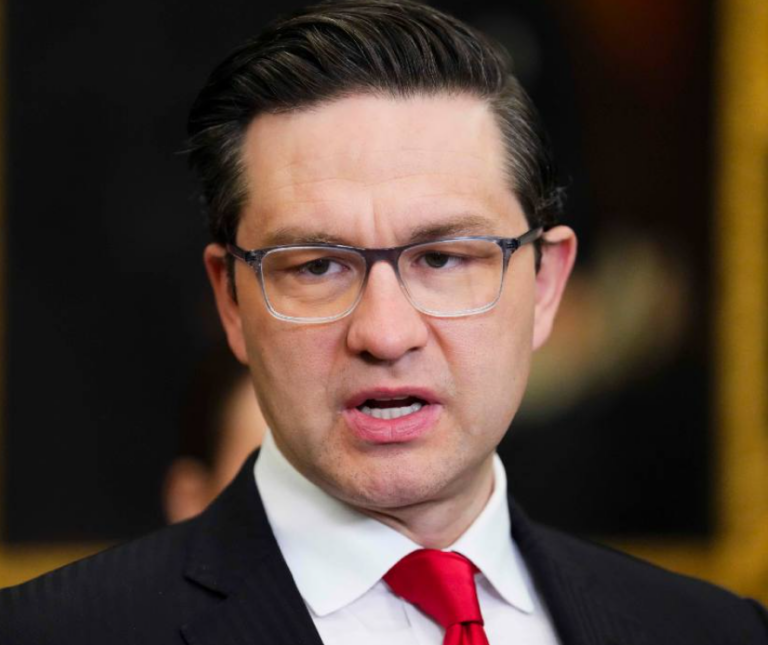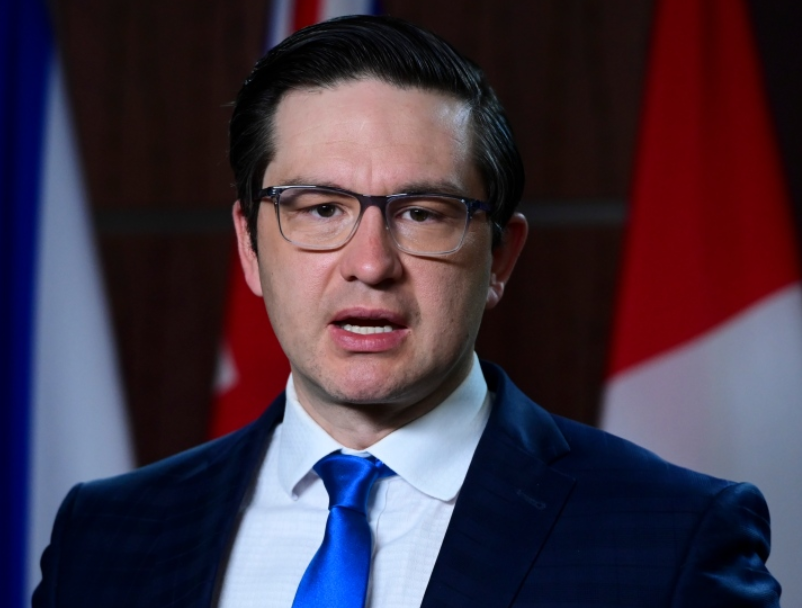Pierre Poilievre: Age, Ethnicity & Facts You Didn't Know!
Can a single politician truly embody the hopes and frustrations of a nation? In the case of Pierre Poilievre, the leader of the Conservative Party of Canada, the answer appears to be a complex and evolving one, as he navigates the ever-shifting currents of Canadian politics.
Born on June 3, 1979, in Calgary, Alberta, Pierre Marcel Poilievre has emerged as a central figure in Canadian political life. He currently holds the esteemed position of Leader of the Official Opposition, a role he assumed in 2022. His journey to the leadership of the Conservative Party has been marked by a consistent presence in the House of Commons, where he has represented the riding of Carleton since 2004. His political trajectory is intertwined with a fascinating personal history, a blend of ethnicities, and a firm grasp of the issues that resonate with a significant segment of the Canadian electorate.
To understand Poilievre's impact, it's important to consider his background, political journey, and the key tenets of his political philosophy. Born in Calgary, Alberta, Poilievre's formative years were spent in the heart of the Canadian West. He attended Henry Wise Wood High School, where he balanced his studies with extracurricular activities, including a stint on the school's wrestling team and working as a paperboy for the Calgary Sun. This early exposure to diverse environments and experiences undoubtedly played a role in shaping his worldview and laying the foundation for his future career.
His formal education further equipped him for the challenges of political life. In 2008, he graduated with a Bachelor's degree in International Relations from the University. Poilievre's academic pursuits underscore his interest in global affairs and his awareness of the intricate dynamics that shape international relations. His education became a foundation upon which his political ambitions could be built.
Poilievre's political career began in earnest with his election as the Member of Parliament (MP) for Carleton in 2004. He has been a prominent voice within the Conservative Party, serving in various capacities throughout his time in Parliament. Prior to assuming the leadership of the party, Poilievre held several ministerial posts, including Minister of State for Democratic Reform (from July 15, 2013, to November 4, 2015) and Minister of Employment and.
As of June 3, 2024, Pierre Poilievre celebrated his 45th birthday. Standing at 6 feet 2 inches (1.88 meters) tall, he cuts an imposing figure, a physical characteristic that complements his commanding presence on the political stage. This height, combined with his sharp rhetoric and unwavering stance on key issues, has contributed to his ability to capture the attention of audiences and the media.
Poilievre's personal history is as intriguing as his political career. He was born in Calgary, Alberta, on June 3, 1979. He was later adopted by schoolteachers Marlene and Donald Poilievre, who is French Canadian. Poilievre is descended from two mothers. His ethnicity is a blend of Canadian and French heritage. His father, a French immigrant, and his mother, a Canadian of British descent, offer a unique cultural perspective that informs his understanding of national identity.
Poilievre's personal beliefs and faith have also played a role in shaping his public persona. He identifies as a Christian and was raised in a Catholic family. This faith has influenced his approach to moral and social issues, and it has resonated with many Canadians.
Poilievre's political style has been described as populist, with some observers drawing comparisons to figures like Donald Trump for his assertive and direct communication style. He has embraced a straightforward approach to addressing issues and has often employed strong rhetoric to capture the attention of voters. He has been known to speak with conviction and is frequently seen to address issues that resonate with a broad swath of the Canadian populace.
Since assuming the leadership of the Conservative Party, Poilievre has sought to position his party as a viable alternative to the ruling Liberal Party. His campaign has focused on issues of affordability, addressing the rising cost of living, and fiscal responsibility. He has been a vocal critic of the current government's policies, offering his vision for a different Canada. Poilievres approach has resonated with a particular demographic that is looking for change and a return to what they view as fiscal conservatism.
In terms of policy, Poilievre has advocated for tax cuts, reduced government spending, and a focus on individual freedoms. He has frequently expressed his support for small businesses and entrepreneurs. He has put forward proposals aimed at stimulating the economy. He has also spoken out on issues that are important to his constituents.
Poilievre's political trajectory has not been without its challenges. He has faced criticism for his sometimes provocative statements and his embrace of populist rhetoric. His political opponents have targeted his stances on social issues, fiscal policies, and environmental concerns. However, his commitment to his beliefs and his ability to galvanize support have allowed him to maintain his position as a prominent voice in Canadian politics.
Poilievre's leadership of the Conservative Party is a work in progress. The coming years will test his ability to unite his party, attract new voters, and convince Canadians that he and his party are ready to govern. His effectiveness in addressing pressing issues like economic growth, social policies, and international relations will ultimately determine his legacy.
In conclusion, Pierre Poilievre's influence extends beyond his role as the Leader of the Official Opposition. He represents a significant segment of the Canadian population, and his political philosophy, background, and personal history have contributed to his prominent position in Canadian political discourse. His journey is far from over, and the coming years will provide the platform to observe how his political style, vision, and personal history shape the future of Canadian politics.
Here's a detailed overview of Pierre Poilievre's background and career:


